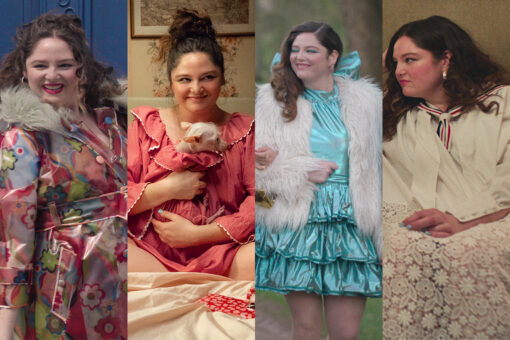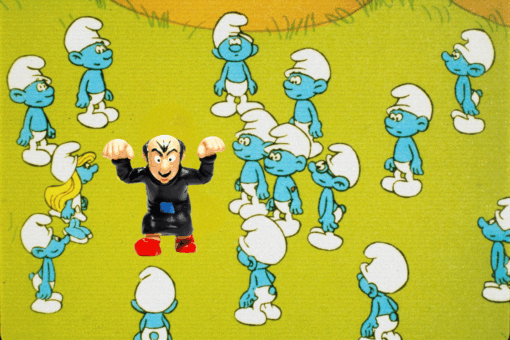For the past two years, one of my best childhood friends and I have watched Crazy Ex-Girlfriend together. We rarely watch on Friday nights when they air; instead, we usually make time to watch a few days later. This simple ritual — him taking time out of his law school life, me resisting spoilers (which is so hard!) — has meant the world to me. Why should you care? Well, the show is ending, and I have a lot of feelings about it. Maybe they’re tied to losing this weekly ritual I cherish, but my friend has been in my life since we were in kindergarten, and he’s not going anywhere.
But I can’t say the same for the magic that is Crazy Ex-Girlfriend.
For the record: I am actually happy when a show decides to end on its own terms, like fellow CW hit Jane the Virgin, Schitt’s Creek, and Broad City. I think it allows the show runners to end the story the way they want, instead of either dragging it out or ending too soon. So as sad as I am that it’s ending, I know that the creators of Crazy Ex-Girlfriend have always intended four parts (which they called “cycles,” not seasons, in case they didn’t get renewed), and they are ending it just the way they planned.
As co-creator and star Rachel Bloom wrote on Instagram, “The last sentence of Crazy Ex-Girlfriend is the same last sentence that we had in the original pilot pitch. Of course, so much has changed from that original pitch to the final product, but the fact that we’ve actually gotten to finish our thought in the way we wanted to and had the opportunity to stay true to our vision without being canceled blows my mind.”
For the past four years, Bloom and Aline Brosh McKenna have given us the gift of Rebecca Bunch. Rebecca is an anxious Jewish woman from Westchester, New York (…same) who, in season one, decides to pick up and move to West Covina, California (not same) to follow her camp boyfriend, Josh, because when they dated all those years ago was the one time she was truly happy.
And, oh yeah, we’re learning all this through a musical comedy.
The music in each episode is smart, funny, catchy, and often winked at (and subverted) well-defined tropes. One of my favorites was the season three pitch-perfect ABBA parody (I am the biggest Mamma Mia! fan, sorry not sorry) in which Paula (Donna Lynne Champlin) sings about the very first penis she saw. Or maybe my favorite was the genius “Let’s Generalize About Men,” or the Ed Sheeran parody “Let’s Have Intercourse,” or the classic musical theater number “A Diagnosis,” or the über catchy “I Gave You a UTI“… Really, I could keep going. I listen to the Crazy Ex-Girlfriend soundtracks on a regular basis (including right now as I write this).
But at the heart of the show, beyond the humor and memorable music, is a frank discussion of mental illness (Rebecca is diagnosed with borderline personality disorder in season three), getting healthy, and figuring out what to do when your world seems like it’s falling apart. In the season three episode where Rebecca attempts suicide, Brosh McKenna explains, “We did a lot of careful research and thinking about it and balancing the tone, making sure that the tone was consistent with what we had done. And you know, there’s aspects of anyone’s personal struggle that are very funny. There’s some gallows humor that goes along with her situation. But I don’t think we have ever kind of hemmed ourselves in on what genre we were or what people expected of us.”
My colleague, Grace Yagel, explains, “Rebecca is a more realistic and relatable character than most characters I’ve seen on TV, because she’s a complex woman and we get to see multiple sides of her. That’s why I’m sad to see the show ending, but I also feel like at this point, she told the story I needed to hear and see. It feels full.”
Whatever people’s expectations were of a show called Crazy Ex-Girlfriend, Bloom and Brosh McKenna have far surpassed it, because, as the original theme song music quipped, it’s a lot more nuanced than that. And — because how could I not mention this — the show is fundamentally Jewish.
Judaism is in the show’s DNA, akin to how Jewishness is a part of Broad City, Russian Doll, The Marvelous Mrs. Maisel, and so many other shows airing right now. But Crazy Ex-Girlfriend is different. In Broad City, Abbi and Ilana represented millennial Jewish women; in Russian Doll, the Jewishness is an undercurrent (Nadia doesn’t always acknowledge it); in Maisel, Jewishness is so obvert it sometimes becomes a caricature (I mean, the show now has its own freakin’ haggadah). But on Crazy Ex-Girlfriend, Rebecca doesn’t shy away from her Jewishness, even if it’s not always at the forefront. It’s how most of us interact with our Jewish identity.
As Alma editor Molly Tolsky tells me, “My favorite part about the show are these very quiet, throwaway lines that are so incredibly Jewish, which I’m sure go over a large majority of the audience’s heads. But they feel like they were written just for me. For example, when Rebecca’s mom is talking about the cutthroat world of Jewish women’s philanthropy, I just about died. You can tell the humor comes from an authentic place.”
The Jewish humor is often so niche that non-Jewish viewers might not necessarily pick up on that. But the specificity of the jokes is what makes them land. In the penultimate episode of the series, Rebecca sings, “In 7th grade I convinced the principal to let me count bat mitzvah prep as my phys ed.” And of course there’s the iconic JAP Battle and JAP Battle 2, which, among Jewish references that Rebecca “translates for the goys,” talk about reclaiming the word JAP, a real conversation many Jewish women today have all the time.
But my personal favorite? “Remember that We Suffered,” which just nails Jewish American culture — and guilt — so perfectly. (The original version of this song is on Rachel’s Hanukkah parody album, Suck It, Christmas!!!, which also has the amazing tune “Chanukah Honey.”) The episode, which takes place in Rebecca’s (very Jewish hometown) Scarsdale, also includes an epic scene of Jewish geography (it’s arguably the show’s most Jewish episode).
From the title of the show, you may think that Crazy Ex-Girlfriend is all about relationships. And the romances — some toxic, some not — in Rebecca’s life do form a core plot. How could you not root for her to find love? And I do, truly, love a good romantic comedy.
But, ultimately, Crazy Ex-Girlfriend is so much more than its romantic plot lines. It’s the story of a Jewish woman finding herself. The show has given us a remarkable way to see ourselves in ways that aren’t a stereotype, exaggeration, or deeply unrealistic. It’s allowed us to sing along and celebrate who we are. And I’m going to miss it so much.



